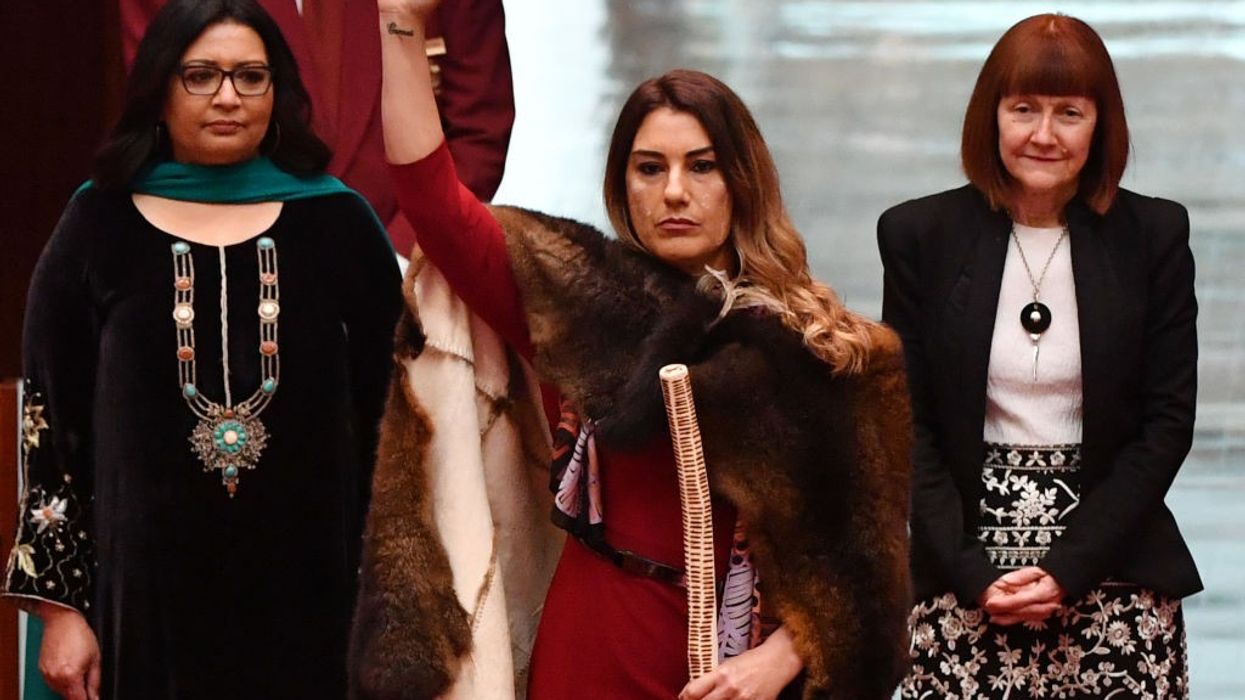When newly elected indigenous Australian parliamentarian Lidia Thorpe took her oath to office last month, she raised her fist above her head in protest and labelled Queen Elizabeth II a "colonising queen".
"It was like kneeling to the murderer," the Greens senator told Reuters this week. "I had to swear my allegiance to a colonising power that has caused so much harm to our people."
The death of Queen Elizabeth has led First Nations people from Canada to Australia and former colonies in the Caribbean to speak about their pain and marginalisation, as well as renewing calls for the removal of the monarchy as head of state in some countries.
The accession of King Charles comes amid a rise in anti-colonialism fuelled by a growing awareness of historical atrocities and a greater recognition of indigenous culture and knowledge.
"There's rising popular consciousness around injustices around the world, what's carried out in the name of one's own nation for the exploitation of indigenous peoples," said Veldon Coburn, an indigenous Anishinaabe professor at the University of Ottawa, Canada.
"Almost overlapping with Queen Elizabeth's reign, from the 1950s, you also see resistance movements emerging."
Calls are growing in some Caribbean countries for reparation payments and an apology for slavery, while Canadian indigenous leaders want the monarchy to act on a swathe of historical injustices.
Australia is on a path to give Aboriginal people a formal voice on indigenous matters in parliament, but Thorpe contrasted the government's decision to hold a day of mourning for the Queen with the historical neglect of indigenous Australians.
"[It] is just another nail in the coffin in terms of how we feel and how we are treated as First Nations people," she said. "It's like we never existed."
The changing demographic in Commonwealth nations, and accusations of racism in the royal family following the exit of Prince Harry and Meghan, has led to more questions about the need for a distant monarch as head of state.
REPUBLIC DEBATE
A decision by Barbados to ditch the queen as head of state in November, 2021 was seen as a boost for the republican cause and has been echoed in other Caribbean nations like Jamaica and Bahamas.
Opinion polls in Australia, New Zealand, Canada have all pointed to a growing view that they should end ties to the monarchy with the death of Elizabeth, even though this is unlikely anytime soon in countries like Canada.
In New Zealand, indigenous Maori account for about 17% of the country's 5 million people. They are well represented in parliament, Maori has been made an official language and the history of British colonisation is taught in public schools.
But Maori are over-represented in prisons and state care, and the community remains the country's poorest.
"If we can't address the negativity and impacts of colonisation now, then when? Do we wait for Prince William, or Prince William's children?" asked Maori Party, co-leader Debbie Ngarewa-Packer, who supports abolishing the monarchy and a New Zealand head of state.
"No one taking that role, king or queen, princess or prince, is unaware of the damage of colonisation to us as indigenous peoples," she said.
New Zealand Prime Minister Jacinda Ardern has said she expects New Zealand to become a republic eventually, but certainly not soon.
Australia's centre-left Labor Prime Minister Anthony Albanese, who openly favours a republic, has tasked a minister with making this happen. But any change would require a referendum and is only expected if the government wins a second term.
Albanese has said now is not the time to discuss the matter, but did note in a radio interview this week that the automatic ascension of King Charles was a chance "to reflect on the system that we have over a period of time."
In Canada, polls suggest about half of all people believe the country should end ties to the monarchy with the death of Queen Elizabeth. Indigenous people account for less than 5% of Canada's population of about 38 million and they suffer from higher levels of poverty, unemployment and a lower life expectancy than other Canadians.
But experts say removing the monarchy from the Canadian constitution would prove difficult.
MESSAGE FOR THE KING
Indigenous leaders in Canada who spoke with Reuters were less interested in severing ties with the monarchy than holding it to commitments it made hundreds of years ago.
When now-King Charles visited Canada earlier this year, Assembly of First Nations National Chief RoseAnne Archibald asked him in person to apologise for the monarchy’s role in colonization. Archibald reiterated that call after the queen’s death.
Anishinaabe lawyer Sara Mainville said she does not want to see the monarchy abolished in Canada, saying the king "has a very important and special place in reconciliation."
Kukpi7 (Chief) Judy Wilson in British Columbia said she hopes the new king will act on things his mother did not – renouncing the "Doctrine of Discovery" that justified colonizing and dispossessing indigenous people, apologising for abusive residential schools, acknowledging indigenous artifacts in British hands and calling for action on climate change.
"Maybe King Charles could step up ... to correct those historical wrongs that impacted indigenous people globally," she said.
"He has the world's eyes right now. What tone is he going to send out in his reign as king?"
(Reuters)





